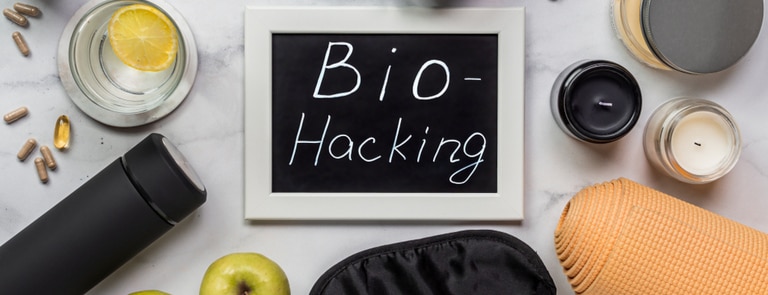10% off £35
19 home remedies for a bloated stomach

Summary
1What is a bloated stomach?
A bloated stomach is when your gastrointestinal tract or GI, tract is filled with air or gas. This makes your stomach feel full and tight.
2What foods make you bloated?
There are a variety of different foods that can cause bloating, including many healthy foods! These include: beans, onions, broccoli and more.
3What drinks make you bloated?
There are a number of different drinks that may cause you to bloat. These include: fizzy drinks, coffee, apple juice and more.
We all know the feeling. You feel sluggish and uncomfortable, and your clothes feel tight around the middle.
Perhaps it’s something you ate – salty, fatty foods are major culprits in causing bloating- or perhaps your diet is lacking in the fibre department and you’re constipated.
Whatever the reason, it’s not an exaggeration to say that bloating can ruin your whole day.
These beverages can help tame a swollen tummy and leave you feeling back to your usual self.
What is a bloated stomach?
- Excess farting
- Constipation
- Swallowing too much air
- Food intolerances
- Coeliac disease
- Irritable bowel syndrome2
What foods make you bloated?
- Beans
Beans are a great source of protein, fibre and carbohydrates. But they could cause bloating in some people. - Onions
Onions are another food that may cause bloating for some people. - Broccoli
While broccoli is a great addition to your diet, unfortunately, it could cause bloating. - Cabbage
Likewise, cabbage is another vegetable that contains raffinose so eating it could lead to bloating. - Sprouts
Likewise, sprouts are classed as another cruciferous vegetable that could cause bloating as they also contain raffinose. - Cauliflower
You guessed it, cauliflower also contains raffinose which means that this tasty vegetable can also lead to bloating in some instances.- Lentils
Another type of nutritious food that could lead to bloating are lentils.
These also contain raffinose so could end up leaving you feeling bloated.
However, soaking or spouting the lentils beforehand may help to prevent this. - Apples
One of the most popular types of fruit, whether you’re having it as a snack or a supplement to a meal – apples too may, unfortunately, cause bloating. - Grains
Some of the most popular culprits for bloating are grains.What drinks make you bloated?
- Fizzy drinks
It might seem obvious – but if you’re regularly drinking fizzy drinks (including diet versions) – it’s a recipe for a bloated tummy. - Coffee
Although it can help you visit the loo, coffee is also known to be a cause of bloating in some people. - Apple juice
It may be just the thing with breakfast, but apple juice can also give you a bloated tummy come mid-morning.- Bloated from alcohol
Due to it being an inflammatory substance, drinking alcohol may cause swelling in the body.
As well as this, it can upset the gastrointestinal tract which could lead to a bloated stomach as well.10 - Milk
It is estimated that 68% of the global population has lactose malabsorption.11 - Diet drinks
Diet drinks often include artificial sweeteners such as sucralose.
It has been found that sucralose can cause IBS symptoms such as bloating.12 - Drinks with high sodium levels
Shop bought vegetable juices and canned soups might be marketed as healthy, but this isn’t always the case. - Anything with a straw
While it can be easier and sometimes fun to drink with a straw – it’s probably not the best idea if you’re prone to bloating. This is because we tend to swallow more air than normal when using a straw, compared to when we drink without one
Can caffeine cause bloating?
Natural home remedies for bloating
- Avoid eating too much fibre, but don’t cut it out completely
- Start taking ‘gut friendly’ bacteria
- Remember to keep hydrated
- Pay attention to your hormonal cycle
- Try to tackle any forms of stress
19 drinks and foods to reduce bloating quickly
Foods that help with bloating
Drinks that help with bloating
Teas for bloating
Does green tea help bloating?
The final say
You also asked...
Last updated: 13 June 2022
- https://familydoctor.org/condition/bloating/
- https://www.nhs.uk/live-well/eat-well/remedies-for-bloating-and-wind/
- https://www.nhs.uk/live-well/eat-well/remedies-for-bloating-and-wind/
- https://www.acs.org/content/acs/en/education/resources/highschool/chemmatters/past-issues/archive-2014-2015/fodmap-intolerance.html
- https://www.acs.org/content/acs/en/education/resources/highschool/chemmatters/past-issues/archive-2014-2015/fodmap-intolerance.html
- https://www.donat.mg/foods-that-cause-bloating-and-those-that-prevent-it/
- https://time.com/85889/the-best-and-worst-foods-for-bloating/
- https://www.donat.mg/foods-that-cause-bloating-and-those-that-prevent-it/
- https://healthpath.com/dysbiosis/ultimate-list-foods-cause-bloating-and-why/
- https://www.drinkaware.co.uk/facts/health-effects-of-alcohol/appearance/how-alcohol-affects-your-appearance
- https://www.niddk.nih.gov/health-information/digestive-diseases/lactose-intolerance/definition-facts
- https://draxe.com/nutrition/sucralose/
- https://www.health.harvard.edu/staying-healthy/problems-with-bloating-watch-your-sodium-intake
- https://food.ndtv.com/food-drinks/can-drinking-excess-tea-cause-bloating-1747808
- https://fdc.nal.usda.gov/fdc-app.html#/food-details/1103352/nutrients,
- https://www.ncbi.nlm.nih.gov/pmc/articles/PMC6315424/
- https://www.ncbi.nlm.nih.gov/pmc/articles/PMC5072703/
- https://www.ncbi.nlm.nih.gov/pmc/articles/PMC4963920/
- https://www.ncbi.nlm.nih.gov/books/NBK559033/
- https://www.ncbi.nlm.nih.gov/pmc/articles/PMC5900870/
- https://www.ncbi.nlm.nih.gov/pmc/articles/PMC6769995/
- https://www.ncbi.nlm.nih.gov/pmc/articles/PMC7579772/
- https://fdc.nal.usda.gov/fdc-app.html#/food-details/168917/nutrients
- https://www.ecowatch.com/benefits-of-lemon-water-2608637935.html
- https://pharmacologyonline.silae.it/files/newsletter/2010/vol1/2.Dighe.pdf
- https://pubmed.ncbi.nlm.nih.gov/31296969/
- https://www.ncbi.nlm.nih.gov/pubmed/16767798
- https://www.ncbi.nlm.nih.gov/pubmed/18630390
- https://www.sciencedirect.com/science/article/pii/S1878535212000792?via%3Dihub
- https://www.ncbi.nlm.nih.gov/pubmed/25954317
- https://www.ncbi.nlm.nih.gov/pubmed/21218090
- https://www.ncbi.nlm.nih.gov/pubmed/15464031














